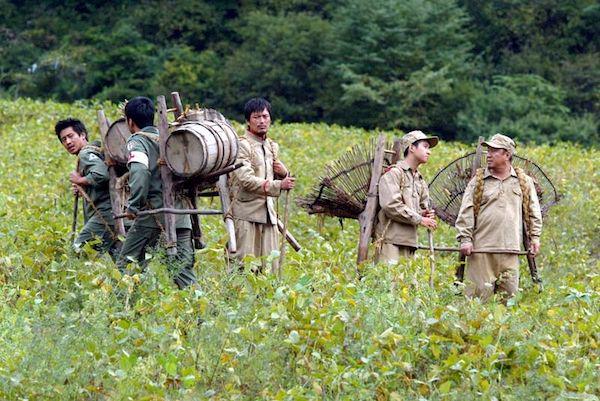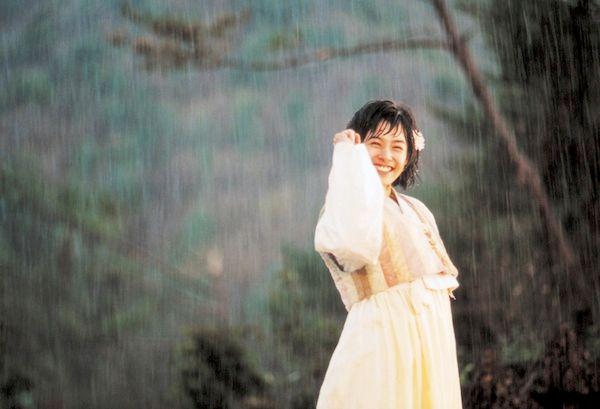
Thoughts on the 2005 Korean film. Directed by Kwang-Hyun Park.
We are dropped right in the middle of the Korean war. Three surviving members of a North Korean unit, two South Korean deserters and an injured American pilot all find themselves in a strange village tucked away on a remote mountain where the inhabitants lead an idyllic life; they know nothing of the outside world and are blissfully unaware of the war that is raging on.



The North and South Korean soldiers have a go at each other at first, and in the chaos that ensues, a grenade goes off, destroying the stockpile of corn in the storehouse and cutting off the village's food supply for a year.

The soldiers then decide to work together and help the village rebuild the storehouse. The rest of the film is centred around how the walls of loyalty towards the soldiers' respective nations crumble as new friendships forge. There's a lot that unravels along the way – goofy comedy, naive love, sadness, introspection on the stupidity of war, brotherhood, as the soldiers begin to drop their veneers and discover their humanity.

Of course the narrative isn't inventive, this is staple pacifist terrain mind you, but it was the treatment that refreshingly stood out for me. This is easily the most colourful anti-war film I've ever watched. There's an almost Disneyesque surrealism and an absurdist hue to the proceedings. Testimony to this is a scene where the soldiers and the entire village come together to kill a wild boar. Another director might have conceived this very differently, but here a seemingly simple scene borders on the fantastical, with some inventive use of CGI.

The acting is top-notch. Jae-yeong Jeong (Lee) and Ha-kyun Shin (Pyo) play their roles as respective North and South Korean soldiers with effective restraint. I also loved Hye-jeong Kang who plays Yeo-il, a challenged girl. She revels in the comedy scenes, especially in the one where she pulls off a grenade ring, mistaking it for an actual ring, and the subsequent scene when it rains, well, popcorn.



This film is supposedly an adaptation of a long-running stage play, but I was constantly reminded of Le Roi de cœur by Philippe de Broca, another comic allegory about war in which a poetry-loving Scotsman is assigned the task of finding a bomb left by the Germans in a French Town that has been abandoned by everyone except the inmates of a mental asylum who crown him king. The difference here is that while the de Broca film is mostly a comedy, Welcome to Dongmakgol has so much more infused into it.
The last few scenes are profound in many ways, but one line that effectively encompasses the anti-war pitch is when Pyo tells Lee just when a barrage of bombs are dropped around them and certain death stares them in the eye:
If we had met somewhere else, in some other way, we would have had real fun.
#film
 Amsterdam, October 2019.
Amsterdam, October 2019. Amsterdam, October 2019.
Amsterdam, October 2019.








